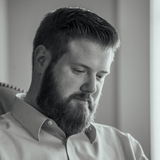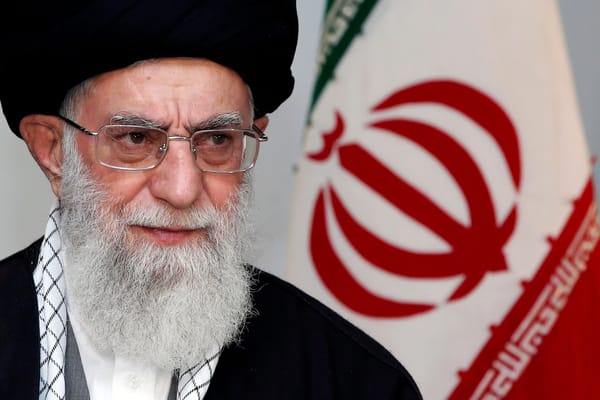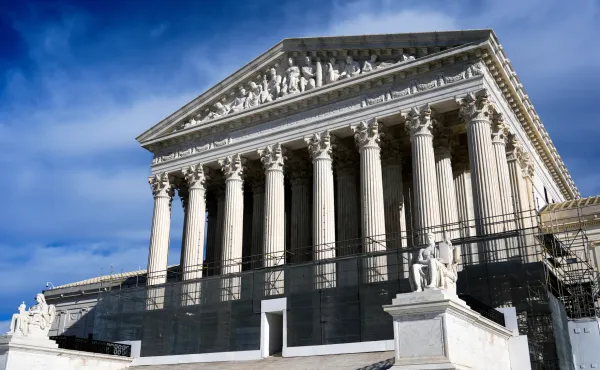Why Am I Unhappy?
Envy tells us others are the reason we’re unhappy. But the real wound is inside—a disconnection from grace. We reject the very humility and surrender that could heal us. As long as we blame others, healing stays out of reach. Envy can’t cure what it hides.

The False Witness of Envy
Envy lets us lie about our inner brokenness. It points the finger outward—at what someone else has—and forces us to compare. Once we discover a difference, we latch onto a false cause for why we’re unhappy.
We say, “I’m unhappy because I don’t have what he has.” And in that simple misdirection, envy empowers us to lie about the source of our pain. We ignore the truth—that our unhappiness runs deeper. That it comes from something inside us that cannot be satisfied with things or opportunities or advantages or wealth or relationships or purpose or function.
Nothing can make us whole until the inner brokenness is healed.
What Is Broken—and What Heals?
At its core, brokenness is disconnection—from the right sources of life. From the flows of grace we were made to live by. And yet, to speak of “life-flows” or intangible nourishment for the soul immediately raises a question:
Can we connect to these sources on our own terms?
If yes, then all we need is information. People will plug in, receive the abundance, and live happily ever after.
But if the answer is no—if we cannot receive these missing parts on our terms—then that changes everything. Because if what we need is grace, truth, peace, and spiritual sustenance, but we can only receive it on another’s terms, then the question becomes:
What are those terms?
If Scripture is true—that God is our provider, who supplies all our needs according to His riches in glory, that those who trust in Him lack no good thing, that He satisfies the hungry, fathers the fatherless, and came to bring life and that more abundantly—then what is required of us to access this nourishment, this flourishing, this abundant life?
If the answer is a certain posture of heart—and perhaps, even more, a certain structure of relationships or submission to design—then that becomes the one thing we refuse to do.
Rejecting the Channels of Grace
We are like the house in the neighborhood demanding water, yet refusing to connect to the pipes. Like the lone cattle ranch in New Mexico asking for electricity, but despising the sight of wires.
So it is with the soul who demands spiritual sustenance to heal their brokenness, but hates humility and despises submission.
We cry out for the grace of God in all its forms—yet exclude the very channels through which it would come. Chief among them are human relationships, according to a divine design.
We stand on our island and scream at the heavens for help. But every time grace appears, it takes a form we reject.
“I’d receive it—just not like that. Not through this. I can’t accept this.”
And so the brokenness remains.
In our broken state, we begin to lie again. We look at others—he’s happy, she’s joyful—and instead of asking why, instead of tracing it back to the conduits of grace they’ve humbly embraced, we say:
“They have something I don’t have.”
Envy Refuses to See
Envy ignores the joy of Corrie and Betsie in the concentration camp. It overlooks the peace that passed understanding in Peter, who slept soundly in a prison cell. It cannot comprehend the laughter of the poor, rich in faith, in the world’s most impoverished regions—where suffering lives, yet so do song and camaraderie.
Envy sees only one thing: power.
- Power of influence (wealth)
- Power of control (violence, intimidation)
- Power of worship (fame, followers, cultural reverence)
It insists that sadness, brokenness, and grief are not the fruit of disconnection—but of insufficient power. And thus, the lie deepens.
The Wealth of Kings—and the Poverty of Soul
Someone recently pointed out that a hundred years ago, no one had a hot shower in the morning. A luxury billions now take for granted.
We live in the most pleasure-filled, powerful, plentiful era of human history. The average modern person lives with more comfort, security, and mobility than kings of old. We are warm in winter, cool in summer. We eat without fear of starvation. We have medicine, rights, access, and entertainment at our fingertips.
So one would expect we’d also be the happiest society in history.
And yet—we’re not. Quite the opposite.
We are lonelier, more isolated, more disconnected than ever before. Dying of an epidemic of disconnection.
We were told by every false gospel that the problem was outside us:
- Economic advantage, Marx told us—if we had more, we’d be content.
- Educational emancipation, Rousseau declared—if we had access to knowledge, we’d be like those we envy.
- Political voice, democracy promised—if we could choose our leaders, we’d finally be free.
- Gender equality, they said—if roles were interchangeable, contentment would follow.
None of it worked. They were lies. Happiness has not risen—it has collapsed.
Why?
Because our desires are not objective. They are relative. Anchored to others. Entangled in envy.
We don’t want to be satisfied. We want to have more than him. Better than her.
That is the emptiness no thing and no one can fill.
The Root of the Fall
We can own more property than any of our ancestors, yet if we have less than someone else, it feels like nothing. We can enjoy better health, better food, and more prosperity than kings of the past—but if the neighbor across the street has more, we feel poor.
We don’t want a world of differences. We want a world of sameness—unless we are the ones with the advantage.
This isn’t some learned cultural trait. It’s hardwired into the fall. This desire was planted by the very first sin of envy.
The DNA of this transgression began not in a man, but in a being of unmatched glory and wisdom—the most beautiful creature God ever made. And it didn’t start by looking down and scorning the lesser. No. It began by looking up and envying the One above.
Not satisfied with being the highest created being, he longed to be like the Most High. And so it began: the spiral of envy. The fall.
Envy is the brokenness. And it rises with the rising tide of prosperity. It does not disappear when people gain more—it tightens its grip.
Even those who have ten times more than their ancestors live in envy. And they are less connected, less trusting, less contented, less fulfilled, less happy than anyone in history.
Why?
Because of envy and greed.
Their happiness isn’t about them—it’s about their neighbor.
Relative Joy and the Endless Race
Modern happiness isn’t measured in contentment. It is measured in comparison.
It is not enough to be well—we must be more well than someone else. Not enough to be loved—we must be more loved than another. More respected. More powerful. More admired.
It is not a pursuit of peace. It is a contest of advantage. A mimetic race to nowhere.
And to be free of this—truly free—is to die to it. To uproot envy from the heart. To strip its tentacles from every blessing, every gift, every moment of grace. It is to lay the ax to the root of the tree and say, “No more will my joy be poisoned by comparison.”
To do this is to be truly free.
Free from the endless tail-chase of self-importance. Free from the corporate serpent swallowing itself. Free from the soul’s collapse into discontentment.
The Only Cure
To be free is to find our repose not in what we have—but in whom we belong.
- In love—both given and received
- In life—not earned, but gifted
- In happiness—not achieved through conquest, but found in sacrifice
For it is more blessed to give than to receive.
And this—this is the cure that envy despises. Because it requires surrender. Because it calls us to a joy the world cannot measure.
It asks us to let go of the question, “What do they have that I don’t?” and to lean into the question, “What grace have I refused because I hated its form?”
It requires us to fall in love again with humility. With submission. With God’s ways and God’s people and God’s design for human flourishing.
Until then, the ache will remain. Until then, no power will satisfy.
Because it was never power we lacked. It was grace we rejected.
The Lie that Frees Us from Responsibility
Envy is more than desire. It’s a form of absolution.
It releases us from responsibility by pointing the finger squarely at someone else. They are the reason I’m unhappy. They are the obstacle. They are the cause.
And in this sleight of hand, envy feels like relief. It feels like justification because it offers a simple, external explanation for internal misery.
But this is why envy is so dangerous. So powerful.
It hates exposure.
Anyone caught in envy will instinctively harden themselves against the words that name it. Even now, someone may be reading these words with a rising irritation, an invisible resistance building within—not because these words are false, but because they’re too near the truth.
Envy blinds us to its presence by making us hate the very suggestion that it might live in us. We deny its existence with vehemence, because to admit it would demand that we look inward. That we acknowledge a brokenness that could be healed—not by gaining what another has, but by humbling ourselves to receive what only God gives.
And here’s the irony: our aversion to the possibility of envy is itself proof that envy is present. It recoils at self-examination. It resists humility. And that very resistance reveals the heart of the matter.
The Way Out Is Down
Healing begins where accusation ends.
As long as we’re still blaming others—still convinced that someone else’s life, opportunity, relationship, or possession is the root of our sorrow—we cannot be healed. We are clinging to a fiction. We are defending a narrative that ensures our bondage.
But when we stop defending—when we finally allow the finger to point inward—everything can change.
The way out is always the way down.
Down into humility. Down into surrender. Down into the death of our pride, our projections, our comparisons.
The river of grace runs low. It always flows to the lowest places. And those who refuse to kneel cannot drink.
A Better Way
There is a better way. A higher happiness.
It is not found in superiority, or having more, or being praised. It is not found in envy’s imagined justice—where the scales are finally balanced, and we stand on top.
No.
It is found in love. In giving. In quiet sacrifice. In belonging to someone greater. In receiving life as a gift—not demanding it as a right.
It is found in connection—to God, to others, to the design of life itself.
It is found in gratitude. In relationship. In grace.
And it begins the moment we stop pointing outward and dare to look inward—not with condemnation, but with the hope that something deep within us can be healed.
Conclusion: Envy Cannot Heal What It Hides
We were not made for rivalry, but for relationship. Not for the restless hunger of comparison, but for the quiet joy of communion. And the longer we allow envy to tell our story, the longer we will live as strangers to peace.
Envy cannot heal what it hides. It cannot satisfy what it misnames. It blinds us to the grace that stands at the door, simply because it comes in a form we refuse.
But the door is still open.
Even now, grace waits—not as a reward for those who win the race, but as a gift for those who lay down the struggle altogether. For those who stop asking, “Why don’t I have what they have?”and begin asking, “What have I refused because I would not bow?”
This is the healing that envy cannot counterfeit—healing that comes not through grasping but through surrender.
And when we surrender—when we humble ourselves and reconnect to the very grace we once rejected—we will find that the life we longed for was never out there in someone else’s hands.
It was always waiting . . . in His.





